Archives
-
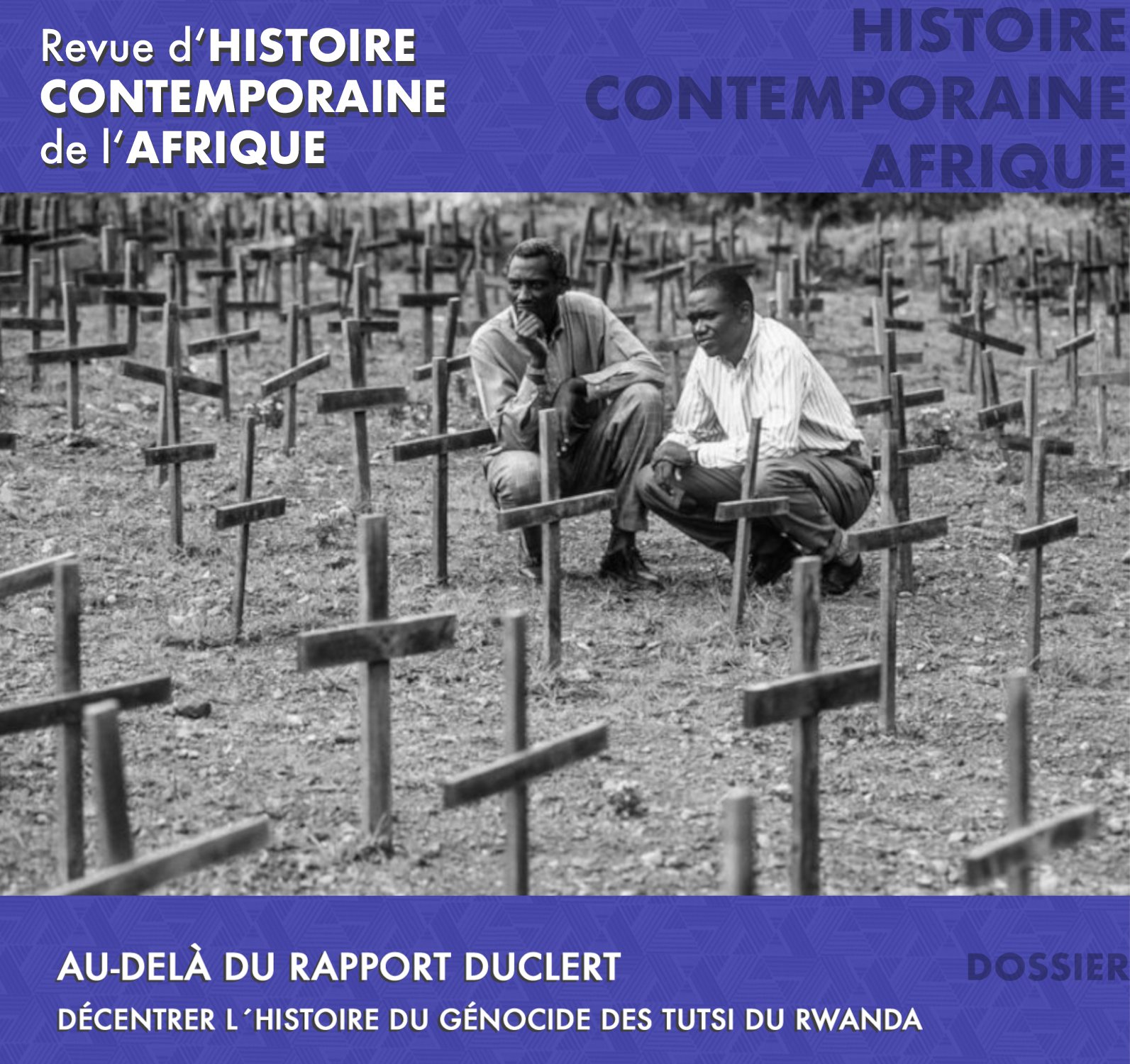
Special Issue: Beyond the "Rapport Duclert". Decentering the history of the genocide of the Tutsi in Rwanda
2021Dossier spécial coordonné au sein de la revue par : Camille Evrard, Muriel Gomez-Perez, Martin Mourre, Florent Piton, Nathaniel Powell et Romain Tiquet
Pour l'éditorial commun avec la revue Sources. Matériaux & Terrains en études africaines dans lequel ce dossier s'inscrit, lire ici.
Ce dossier spécial s’articule autour d’un ensemble de réactions au rapport, portant le plus souvent sur d’autres aspects que la question française, à la méthodologie et aux conclusions de la commission. Marie-Eve Desrosiers, met ainsi en évidence ce qu’elle estime être un « biais présentiste » dans la manière dont la commission a analysé la période correspondant aux premiers mois de la guerre civile à la fin de l’année 1990.
Ornella Rovetta interroge la possibilité d’« écrire l’histoire en commission », c’est-à-dire sur la base d’un corpus archivistique et dans une chronologie définie moins par une question de recherche que par le pouvoir politique.
Via une analyse qu’elle qualifie de « sexospécifique », Caroline Williamson Sinalo met quant à elle en évidence l’occultation des perspectives de genre dans le rapport, non seulement lorsque celui-ci examine les violences et les pratiques de cruauté commises avant et pendant le génocide sur les Tutsi, mais aussi, les accusations de viols formulées à l’encontre de militaires français lors des opérations Noroît et Turquoise entre 1990 et 1994.
Proposant une montée en généralité à partir du contenu du rapport Duclert, Étienne Smith s’intéresse d’une part à la manière dont le rapport examine les tensions et les contradictions qui ont traversé l’institution militaire à propos du Rwanda entre 1990 et 1994, d’autre part à la façon dont cette même institution a réagi à la publication des conclusions de la commission.
Le dossier de réactions au rapport Duclert s’achève par un texte au statut singulier, car n’émanant pas strictement d’une personnalité académique, en la personne de l’écrivain sénégalais Boubacar Boris Diop. Dans ce texte que nous nous réjouissons de publier simultanément en wolof, il propose une remise en contexte du rapport Duclert, dont il souligne bien qu’il est une étape parmi d’autres – et sans doute pas la dernière – dans le chemin vers la « vérité ».Plusieurs autres textes complètent cet ensemble d’articles. Un article Varia de Florent Piton portant sur l'historiographie du génocide des Tutsi du Rwanda, un entretien avec François Graner, militant de Survie et très engagé sur le dossier Rwandais, ainsi que plusieurs comptes-rendus de lecture.
Articles publiés par Sources dans le cadre de notre collaboration :
- "Écrire l’histoire du génocide des Tutsi au Rwanda à partir de sources locales. Entretien avec Paul Rutayisire, Charles Kabwete Mulinda et Philibert Gakwenzire" -

Cheikh Anta Diop, 1923-1986. Context, scope and legacy of a political activist
No. 4 (2023)Issue coordinated by Amzat Boukari-Yabara (École politique africaine) and
Martin Mourre (IMAf-EHESS)
Editorial coordination (RHCA) by Louise Barré and Camille EvrardThis issue of the Revue d'histoire contemporaine de l'Afrique focuses on the thought and political action of Cheikh Anta Diop. Diop is best known for his scientific work, begun in the late 1940s, in which he explored the origins of human civilisations, their genealogies and reciprocal influences, using the African continent as a starting point. He demonstrated both the "negro" character, in the vocabulary of the time, of ancient Egypt and the cultural unity of the peoples of sub-Saharan Africa from prehistoric times to the emergence of the "empires" of the Middle Ages. In so doing, his work also denounces what he calls the "modern falsification of history", which he considers to be the work of most Western Egyptologists. Cheikh Anta Diop was also a leading pan-Africanist, advocating the creation of a federal state for Africa at the time of decolonisation. Politically, he produced a great deal of theoretical work, while also organising political struggles, mainly in France and Senegal.
This issue is dedicated to Pathé Diagne (1934-2023), a man of science and culture and a comrade in struggle with Cheikh Anta Diop.
-
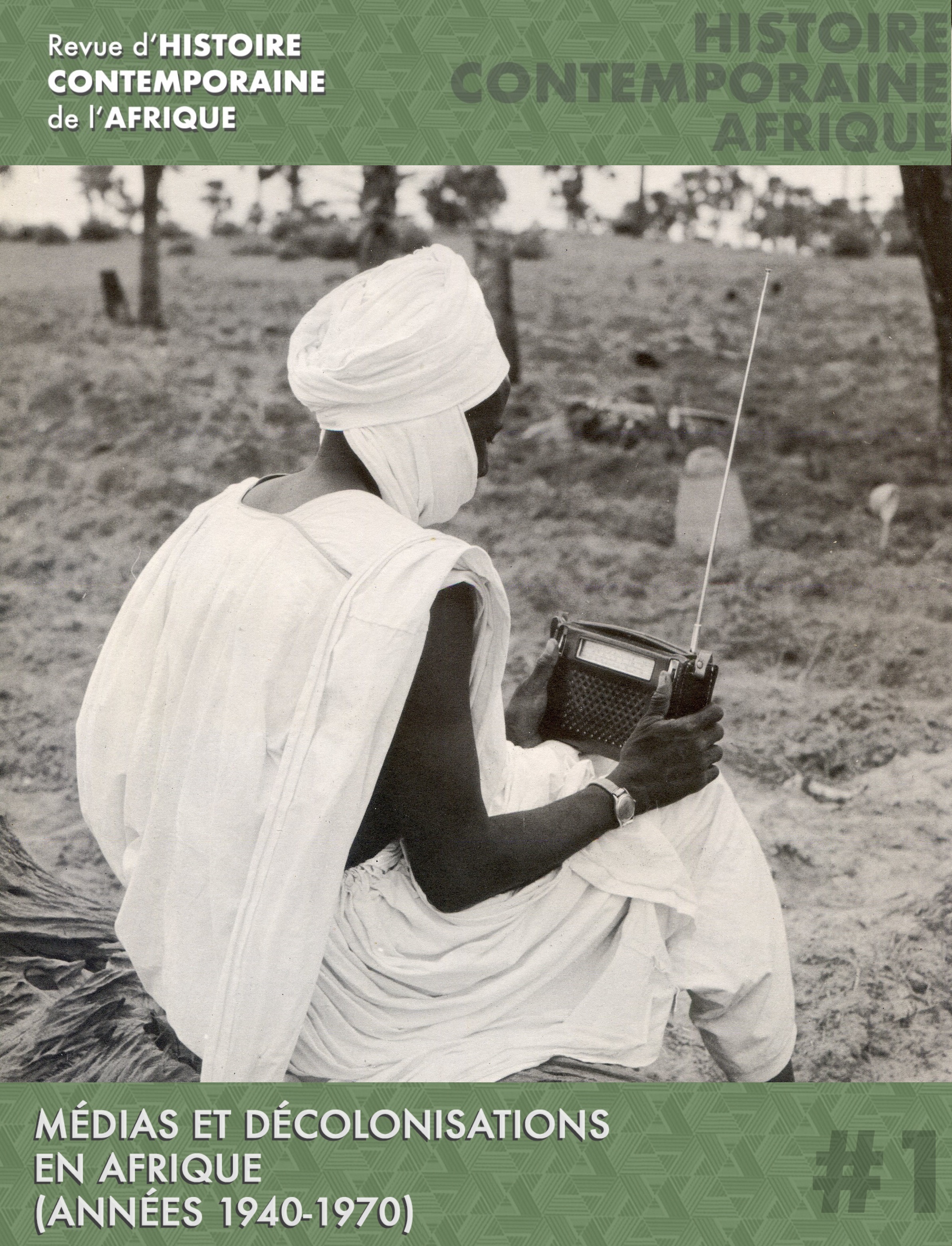
Médias et décolonisations en Afrique (années 1940-1970)
No. 1 (2021)Numéro coordonné par Gabrielle Chomentowski (CHS/CNRS) et Thomas Leyris (IHRiS/Lille)
Coordination éditoriale au sein de RHCA : Romain TiquetCe numéro thématique de la Revue d’Histoire Contemporaine de l’Afrique est consacré à plusieurs supports médiatiques (presse, cinéma, radio, télévision) dans des pays d’Afrique francophone à l’époque du colonialisme tardif et jusqu’aux premières décennies après les indépendances. À travers différents cas nationaux (Congo belge, Sénégal, Togo, Haute-Volta, Côte d’Ivoire, entre autres), et à partir d’entretiens et d’archives inédites, les auteurs reviennent sur la formation, le parcours et le rôle des acteurs de ces médias (journalistes, coopérants, missionnaires, distributeurs de films, etc.) ; ils analysent les contenus (écrits et audiovisuels) et leurs réceptions ; ils interrogent la rupture et les continuités qui ont enjambé la césure politique des indépendances dans le développement de ces médias. Dans chacun de ces sept articles, l’étude des médias - considérés comme objet et non seulement comme source d’histoire – révèle la nécessité de varier les échelles d’analyse, du local au global en passant par l’impérial, afin de contribuer à l’histoire culturelle de ces pays d’Afrique.
Ce premier numéro de RHCA s'accompagne aussi d'un article varia, de comptes-rendus de lecture, d'un article "Sources, terrains et contextes" et d'un entretien.
Et pour lire l'éditorial de la revue, écrit par le comité de rédaction, c'est ici.
-
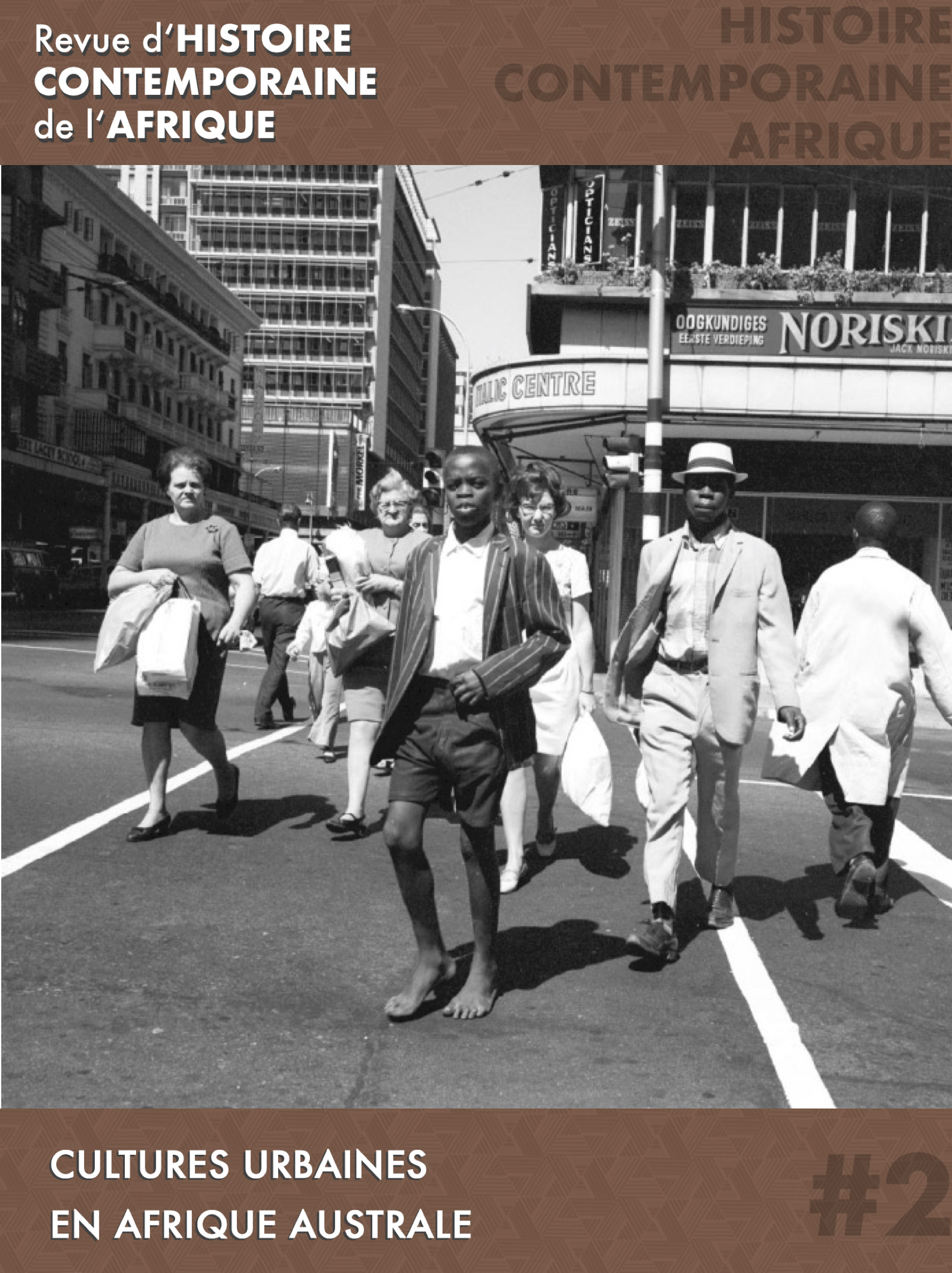
Urban cultures in southern Africa
No. 2 (2021)Issue coordinated by Sophie Dulucq (IFAS Research/FRAMESPA), Noor Nieftagodien (Witwatersrand University) and Mathieu Rey (IFPO/IFAS Research)
Editorial coordination (RHCA): Camille Evrard and Alexander Keese
This special issue aims to address the cultural history of urban societies in contemporary Southern Africa. Between repulsion and attraction, domination and resistance, invention and accommodation, this history has been shaped by encounters between African populations and European settlers, by diasporic communities in the colonial and post-colonial periods and by migrants of all origins. This issue highlights the multiple links between places, specific scenes and the cultural forms that have developed there.
-
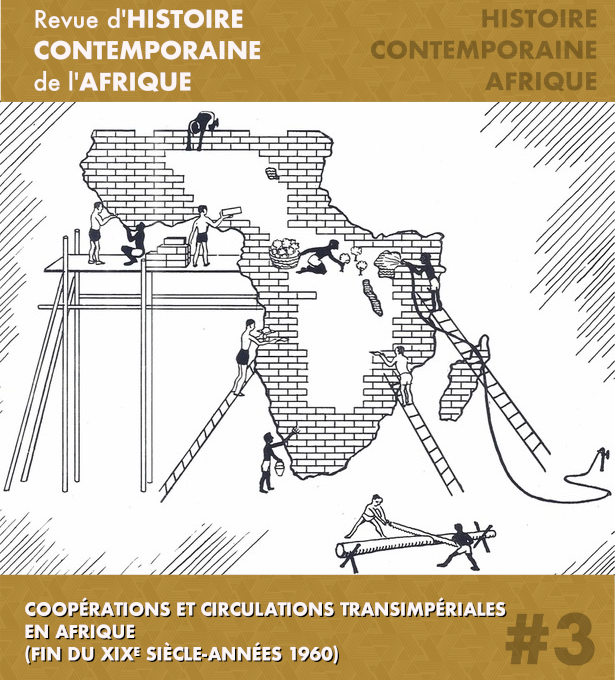
Cooperations and Transimperial Circulations in Africa (end of the 19th century - 1960s)
No. 3 (2022)Issue coordinated by Damiano Matasci (Université de Genève) and Miguel Bandeira Jerónimo (Université de Coimbra)
Editorial coordination (RHCA) by Céline Labrune-Badiane and Martin MourreThe first part of this double issue of the Revue d’Histoire Contemporaine de l’Afrique explores the wide range of connections, transfers and exchanges that spanned the borders of colonial empires between the end of the 19th century and the 1960s. More specifically, its aim is to contribute to decentering the history of Africa by placing the study of mobility at the heart of the reflection. Based on a variety of case studies embracing the whole continent, the contributions unveil little-known or understudied colonial circuits, as well as the dynamics of cooperation and competition between a wide range of international, imperial, colonial, and African actors. They also highlight connections with other regions of the world and provide original perspectives for understanding the complex transactions that shaped, and were shaped by, the trajectories towards political emancipation. Taken as a whole, the articles ultimately demonstrate the heuristic potential of trans-imperial history and pave the way for new research.
-
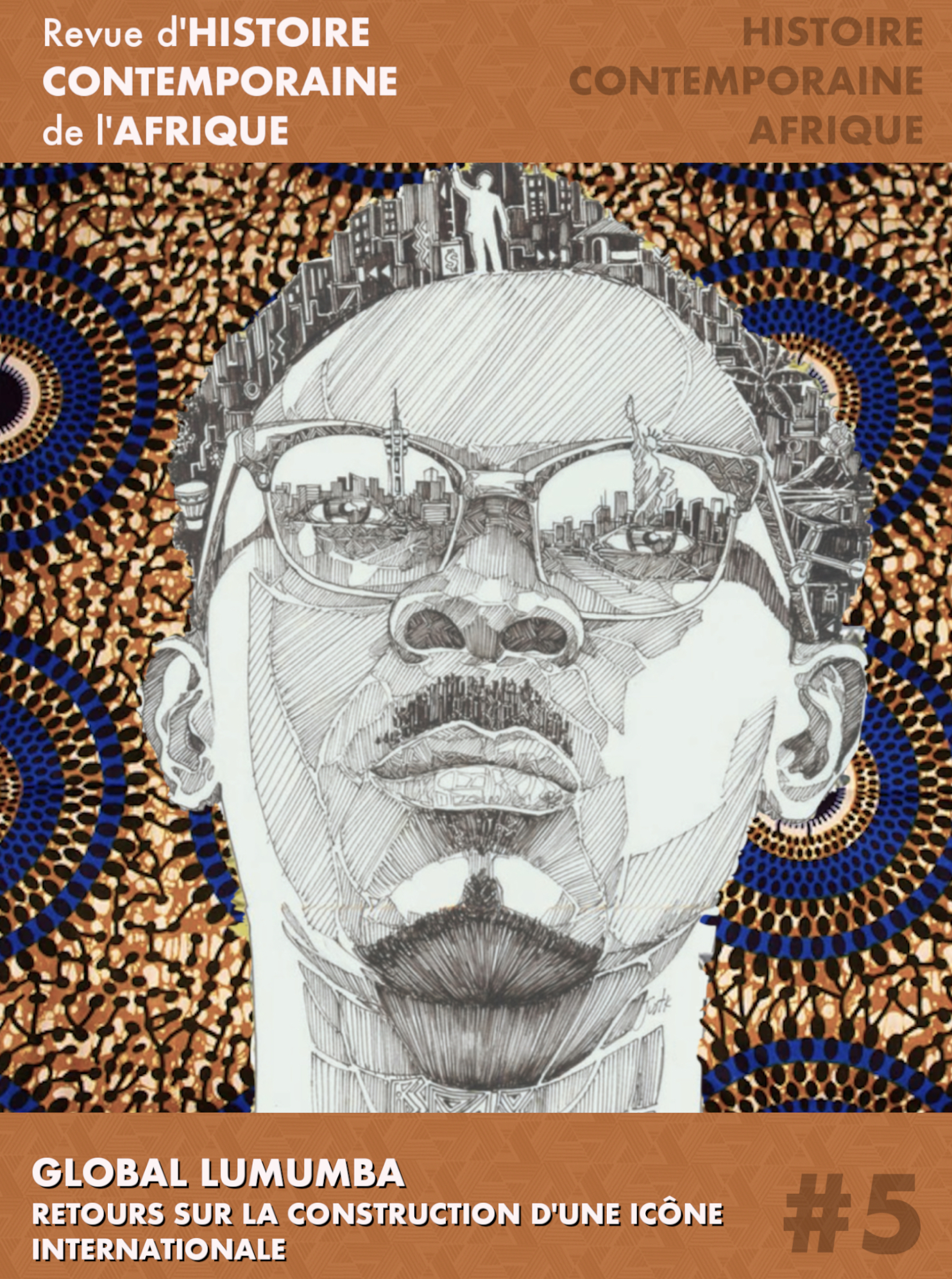
Global Lumumba. Looking back at the construction of an international icon
No. 5 (2023)Issue coordinated by Élisabeth Dikizeko (Imaf, Paris) and Karine Ramondy (Sirice, Paris)
RHCA editorial coordination by Romain Tiquet
This new issue of RHCA is not intended as a biography of Patrice Lumumba (1925-1961), the first Prime Minister of the Republic of Congo. Indeed, this issue seeks less to draw up a historiographical account of the rise and fall of the Congolese leader, or of the Congolese crisis (1960-1965), than to understand the genealogy of a global phenomenon based on the "Lumumba" object of study. As such, this dossier seeks to grasp the scope and significance of Lumumba's name around the world through a variety of materials, in order to understand the mechanisms of the international construction of an African political figure, known worldwide not least because of his assassination. -
En flux continu : Varia/CR/Sources, terrains & contextes/Entretiens
This issue gathers papers published in the journal's sections: Miscellanea, Critical reviews, Sources, fields & contexts, Interviews.







